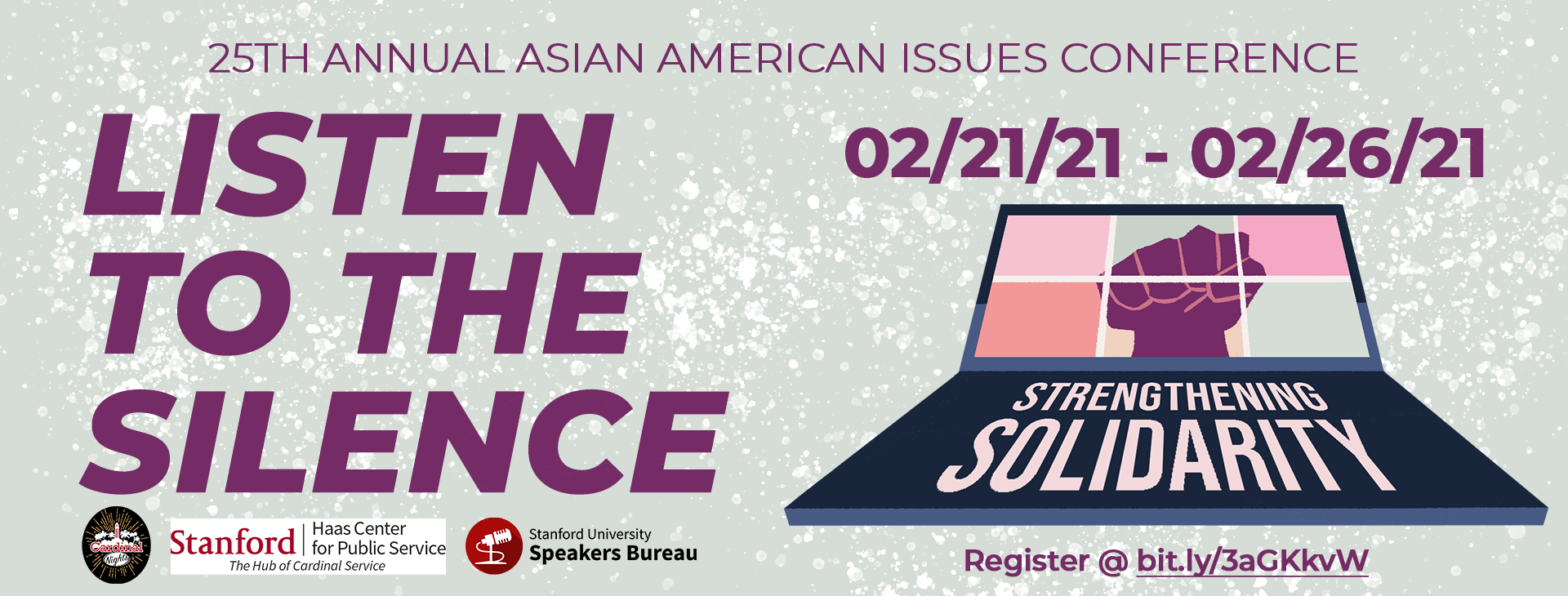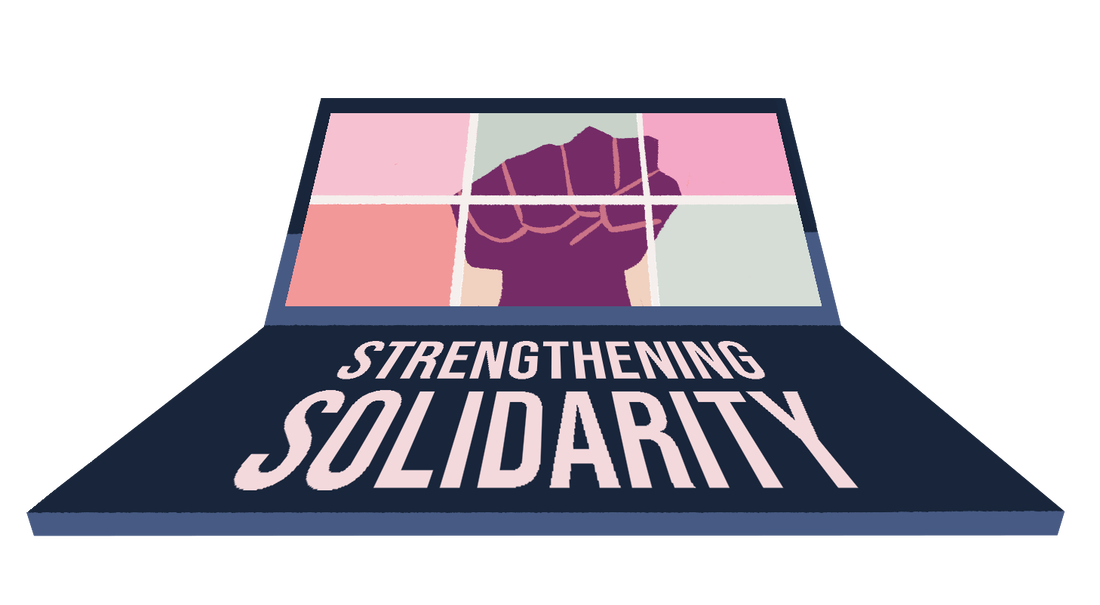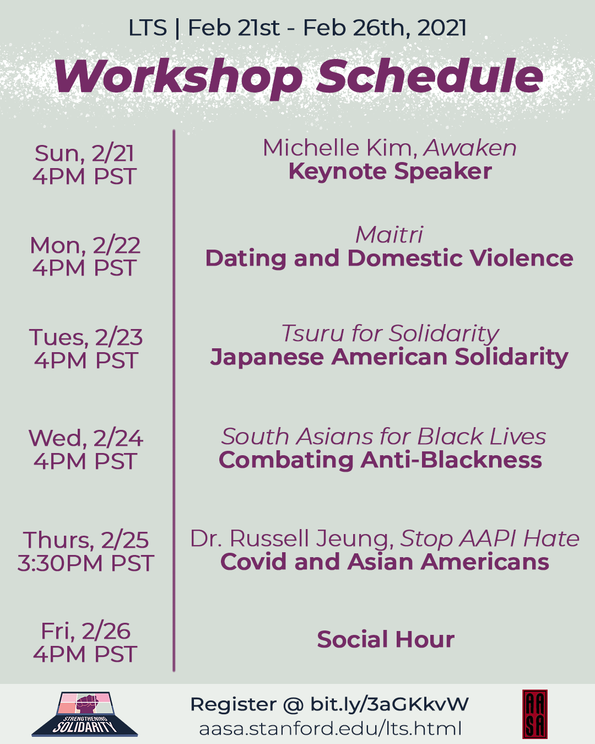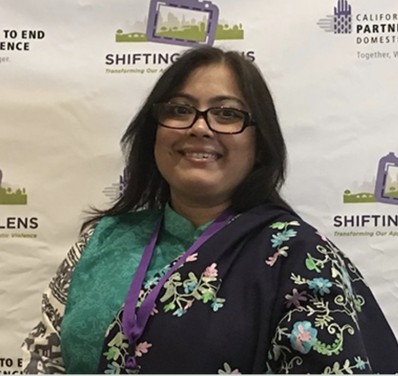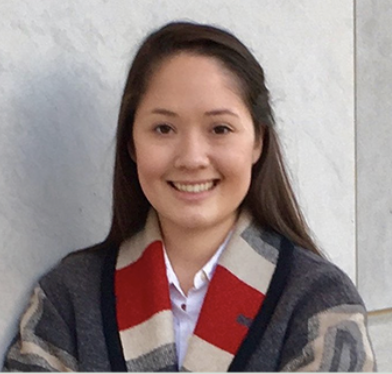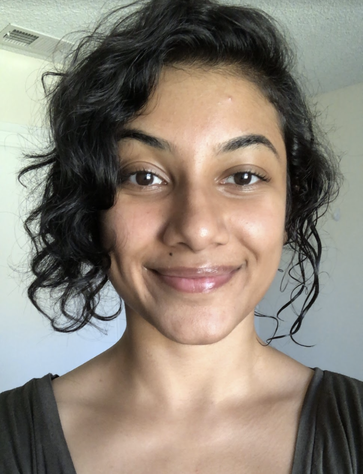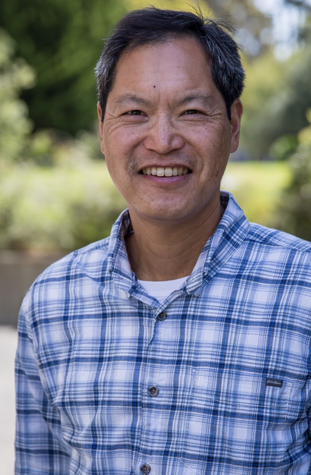What is Listen to the Silence?
Recognition of Space During Black History Month
The LTS team understands that our conference will take place during Black History Month. We stand in support and solidarity with the Black community. While also on this website and engaging with our conference, please check out some of their resources below:
Recognition of our Geographic Space
Though we are virtual this year, Listen to the Silence typically takes place on Stanford campus, and we acknowledge that Stanford campus is located on Muwekma Ohlone land and that our institution has a history of marginalizing and stealing from native and indigenous communities. Thus, in addition to this acknowledgement, we encourage you, as well, to learn more and better understand on what native lands you reside. Please check the resource below, which is by no means the only resource you can explore:
KEYNOTE SPEAKER
Michelle Kim
Michelle Kim is an entrepreneur and diversity, equity, and inclusion thought leader who believes in creating compassionate space for uncomfortable conversations that go beyond just “checking the box.” She is the CEO of Awaken, a leading provider of interactive DEI workshops, where she has consulted hundreds of organizations and top executives from Fortune 500 to tech giants to spark meaningful change. Michelle has been a lifelong social justice activist and has served on a variety of organizations such as the San Francisco LGBTQ Speakers Bureau, SF Human Rights Commission’s Advisory Committee, and LYRIC nonprofit’s Board of Directors. Her work has appeared on world-renowned platforms such as Harvard Business Review, Forbes, The New York Times, and NPR, and she has been named Medium’s Top Writer in Diversity three years in a row. Michelle is also the author of the upcoming book, The Wake Up: Closing the Gap Between Good Intentions and Real Change!
Subscribe for book updates here: https://tinyurl.com/yy6g2a2v
Follow Michelle on:
Instagram: @michellekimkim
Twitter: @mjmichellekim
LinkedIn: https://www.linkedin.com/in/mjmichellekim/
Subscribe for book updates here: https://tinyurl.com/yy6g2a2v
Follow Michelle on:
Instagram: @michellekimkim
Twitter: @mjmichellekim
LinkedIn: https://www.linkedin.com/in/mjmichellekim/
Workshop Leaders
|
Workshop Time: Monday, Feb 22 4:00PM PST
Nandini Ray, Manager of Maitri’s Outreach & Prevention Program: Nandini holds M.A. in Journalism, B.A in Philosophy from University of Calcutta, India. And B.A. in Sociology from University Of Toronto, Canada. Prior joining Maitri, Nandini worked as a freelance journalist at leading publications in India. Nandini is multilingual, fluent in English, Bengali, and Hindi.
At Maitri she builds relationship with community based organizations & community groups, attends community events, presentations, panel discussions, provides trainings for service providers, and work for media presentation for Maitri. Her effort has strengthened Maitri’s social media presence and she hosts Maitri’s podcast, Between Friends, Conversations with Maitri |
Workshop Time: Tuesday, Feb 23 4:00PM PST
Lisa Doi’s family was held at Rohwer, Crystal City, Santa Anita, and Tanforan. She is the fourth generation in her family to make a home in Chicago. There she is the president of JACL Chicago and a member of the Midwest Buddhist Temple. With JACL Chicago, Lisa focuses on youth leadership and identity development and has facilitated several youth-focused pilgrimages to Manzanar, Rohwer, and Jerome. Lisa has completed M.A. research on Japanese American residential patterns in Chicago. She is for Issei voices and stories of those who did not survive their confinement.
Tsuru For Solidarity is a direct action, nonviolent project organized by members of the Japanese American community in collaboration with allied national organizations and networks. Their mission is to end detention and separation of families in the United States. |
|
Sneha works with SouthAsians4BlackLives, CAT911, and the movement to abolish campus police and policing (UCFTP, and other UC abolitionist organizing). She is also a Ph.D. candidate in Ethnic Studies at the University of California, Riverside.
Sneha’s academic and organizing work centers women of color feminisms and queer theory and practice to address the following: identity as relationality, relationships with antiblackness and indigenous genocide, and other worldly possibilities that can emerge from communal and relational self-reflexivity as praxis and being. |
Professor of Asian American Studies at SF State University, Dr. Jeung is author of several books and articles on race and religion, including, Family Sacrifices: The Worldviews and Ethics of Chinese Americans (Oxford University Press, 2019); Moving Movers: Student Activism and the Emergence of Asian American Studies (UCLA Asian American Studies Center, 2019); and At Home in Exile: Finding Jesus among My Ancestors and Refugee Neighbors (Zondervan, 2016).
In 2020, Dr. Jeung co-founded Stop AAPI Hate with Chinese for Affirmative Action and the Asian Pacific Policy and Planning Council. It is the leading aggregator of anti-Asian hate incidents and a policy advocacy organization addressing COVID-19 discrimination. |
